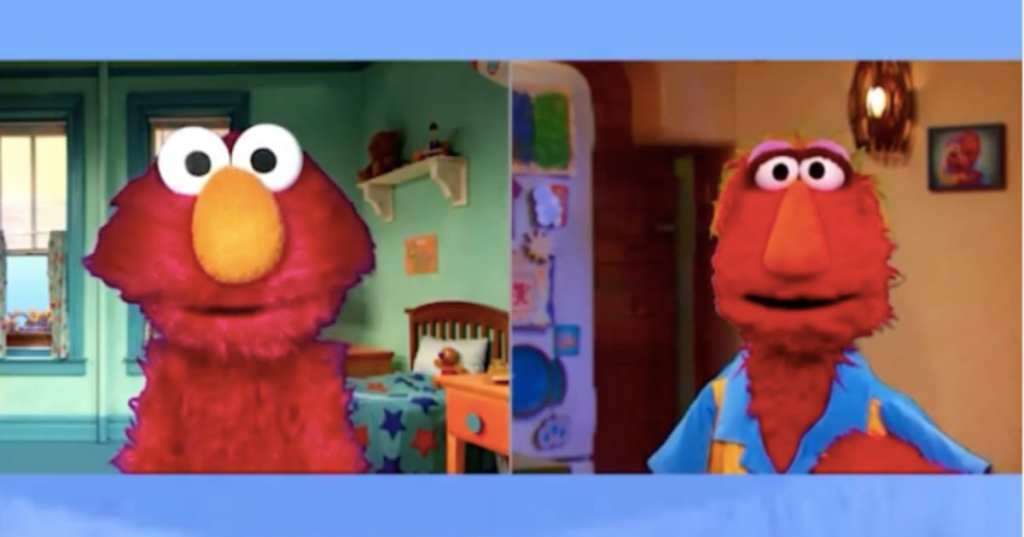Kids have been relying on Sesame Street to teach them all kinds of things for decades, now. We learn how to count and how to spell, letters and numbers and months and days of the week, but also how to treat other people, how to handle diversity in our spaces, and how to watch for others who might be struggling.
In this year of unprecedented struggles the television show is stepping up to the plate, talking about staying safe and healthy in public spaces and how to handle racism and racist behavior in your life.
The show as always been written and run and consulted on by experts in the field of child development (and others), so you can rest assured that if your kid is watching it, their mind is being catered to in the healthiest possible way – and below are 5 times they went above and beyond to tackle the really tough topics that affect kids every day.
5. Big Bird learned about death.
On Thanksgiving in 1983, Sesame Street talked about the death of Will Lee, who played Mr. Hooper on the show for 14 years. Big Bird drew a picture he wanted to show Mr. Hooper, forgetting that he was gone, and the humans on the show help him understand what that meant.
It opened the door for parents to answer questions their kids might have about death at home.
4. Kami is HIV-positive.
The show introduced Kami in 2002, a character on the South African version of the show. She’s HIV-positive and has become a global symbol of acceptance and education of the disease.
3. Telly learned about racism (back in 1993).
Gina (a white character) got an upsetting call from a stranger angry that she was friends with Savion (a black character). Telly Monster witnessed the incident and had many questions about why someone would be upset about a choice of friends.
Sesame Street recently tackled the topic again on a CNN town hall, discussing racism, protests, and policing in a way accessible to kids.
2. Julia has autism.
Julia is a preschooler who “does things a little differently when playing with her friends,” and was introduced back in 2015. She has autism, and officially joined the cast in 2017.
1. Elmo reacted to 9/11.
Sesame Street calls New York City home, and so felt they needed to address this tragedy. Elmo does so by visiting a fire station and learning what firefighters do, and felt safe again after witnessing a fire in Hooper’s Store.
I try all the time to get my kids more into Sesame Street for reasons exactly like these.
What is your favorite memory of the show? How has it impacted your children? Tell us about it in the comments!
